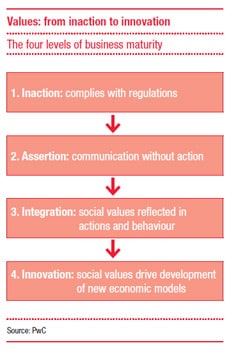My old strategy professor from b-school recently released a new edition of his book and outlines his 10 principles of strategic sustainable value creation. Some of the debate in another thread centered around some of these ideas, and wanted to get WCers take....
1. Business equals social progress.
2. Shareholders do not own the firm.
3. Identifying stakeholders is easy; prioritizing among stakeholder interests is difficult.
4. CSR is not solely a corporate responsibility.
5. Market-based solutions are optimal.
6. Profit = economic value + social value.
7. The free market is an illusion.
8. Scale matters; only business can save the planet.
9. Strategic CSR is not an option; it is business.
10. Milton Friedman was right, the social responsibility of business is business.
1. Business equals social progress.
2. Shareholders do not own the firm.
3. Identifying stakeholders is easy; prioritizing among stakeholder interests is difficult.
4. CSR is not solely a corporate responsibility.
5. Market-based solutions are optimal.
6. Profit = economic value + social value.
7. The free market is an illusion.
8. Scale matters; only business can save the planet.
9. Strategic CSR is not an option; it is business.
10. Milton Friedman was right, the social responsibility of business is business.
